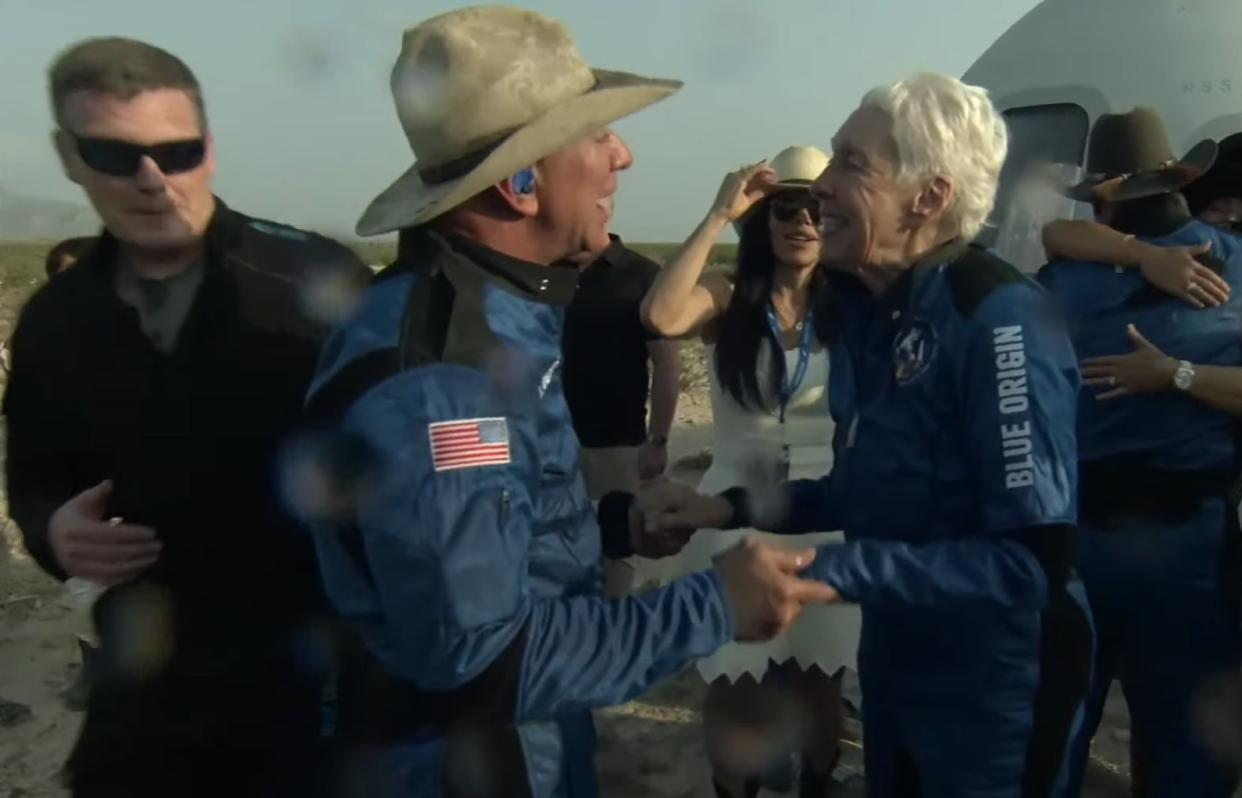Space tourism tax: Congressman announces new plan after Blue Origin launch
Shortly after Jeff Bezos — the world's richest man — completed his first spaceflight, Rep. Earl Blumenauer (D., Oreg.) announced he's working on a plan for a new tax targeting space tourism.
The Securing Protections Against Carbon Emissions (SPACE) Tax Act would create new excise taxes on commercial space flights with human passengers for non-research purposes.
“Space exploration isn’t a tax-free holiday for the wealthy. Just as normal Americans pay taxes when they buy airline tickets, billionaires who fly into space to produce nothing of scientific value should do the same, and then some,” said Blumenauer in a statement. “I’m not opposed to this type of space innovation. However, things that are done purely for tourism or entertainment, and that don't have a scientific purpose, should in turn support the public good.”
Blumenauer noted he's worried about the environmental impact of launching humans into space for tourism or entertainment purposes.
Read more: Bezos space flight: Billionaire space race could benefit regular people, too

"While proponents of suborbital space flights point to transatlantic flights as having similar carbon footprints, these flights carry significantly more passengers and travel much farther," said a press release from Blumenauer's office. "The result is space launches accounting for an estimated 60-times greater emissions than transatlantic flights on a per-passenger basis, enough to drive a car around the earth and more than twice the carbon budget recommended in the Paris Climate Agreement."
While Blumenauer has not released details of the proposal yet, he said he's considering a per-passenger tax on the price of a commercial flight into space — similar to commercial flights. He would also like it to include a two-tiered excise tax for each launch. The first tier would apply to suborbital flights between 50 and 80 miles above the Earth's surface. The second tier — flights exceeding 80 miles above the Earth's surface — would face a "significantly higher excise tax."
According to a press release, the bill would have exemptions for NASA spaceflights for scientific purposes.
"In the case of flights where some passengers are working on behalf of NASA for scientific research purposes and others are not, the launch excise tax shall be the pro rata share of the non-NASA researchers," the release said.
Jessica Smith is chief political correspondent for Yahoo Finance, based in Washington, D.C. Follow her on Twitter at @JessicaASmith8.
Read more:
Weed in America: Federal government 'disconnected from reality,' Wyden says
House committee approves bill to require climate risk disclosures
Honest taxpayers 'should want more enforcement': Congress debates how to close the tax gap
Biden to raise minimum wage for federal contractors to $15 an hour
Read the latest financial and business news from Yahoo Finance
Follow Yahoo Finance on Twitter, Facebook, Instagram, Flipboard, LinkedIn, YouTube, and reddit
